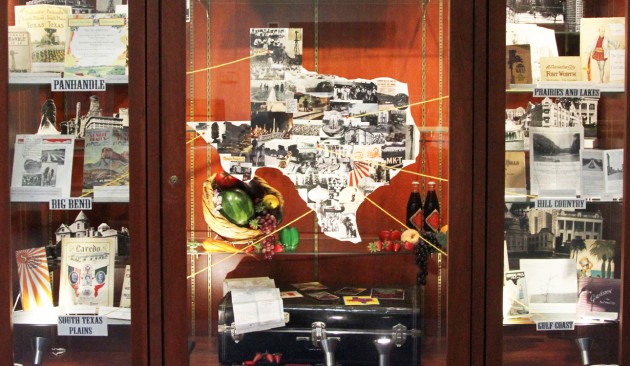By Daniel Houston
Staff Writer
A Texas historian spoke Thursday on campus about how the Texian Army strapped itself with debt and obligations to fund its effort to defeat Mexican forces during the war for Texas independence.
The Texas Collection and its director, John Wilson, sponsored the event featuring a lecture by James Bevill, author of “The Paper Republic: The Struggle for Money, Credit and Independence in the Republic of Texas.”
Bevill serves as first vice president for investments at the River Oaks office of UBS Financial Services Inc.
“James is not an academician by profession, but he certainly is a scholar of Texas history,” Wilson said while introducing the evening’s speaker. “Mr. Bevill’s true passion, aside from building wealth for others, is as an economic and financial historian.”
The revolution was financed primarily through issuing promissory notes to investors that could be redeemed for money and land that the Texian army would not have title to until it defeated the Mexican army in battle, Bevill said.
“They did it by begging,” Bevill said. “Texas sent emissaries to the United States to solicit donations for the Texian war cause. They did it by borrowing; the raising of large amounts of money through borrowing was thought to be the most expeditious way to raise the money, which it still is.”
This prompted many of the investors, including Davy Crockett and other famous figures who came from the United States, to relocate to Texas and assist the war efforts to help ensure the Texas army could make good on its debts.
“They were here in Texas because they were literally fighting for a piece of it,” Bevill said. “Don’t think that money and large amounts of real estate [did not factor] into their patriotism, because it did.”
As a result of the measures taken by Texas leadership, Bevill said, the republic was in a poor financial position heading into a global economic depression similar to the economic downturn the United States and Europe are currently dealing with.
“As they leveraged the balance sheet and took on this additional debt, the Financial Panic of 1837 hit,” Bevill said. “This was a credit crisis; this was a five-year global credit pandemic that dried up the available credit, popped the real-estate bubble. . . drove all the hard money out of circulation and plunged the economy into a multi-year economic depression. Sounds familiar, doesn’t it?”
Bevill’s book earned the Summerfield G. Roberts literary award by the Sons of the Republic of Texas, a group of descendants of Texas settlers devoted to promoting research of Texas history.
The book “offers an essential understanding about the role money plays in government and history,” according to the publisher, Blue Sky Press.
“Surprisingly,” Bevill said, “many historians simply skip over the study of the money and finances of the Republic of Texas era; yet the Republic of Texas was very largely an economic story.”



